The Fugs — The Fugs First Album
You don’t know ’60s protest music if you don’t know The Fugs. This album was originally released in 1965 as “The Village Fugs Sing Ballads of Contemporary Protest, Point of Views, and General Dissatisfaction.” My version is simply titled “The Fugs First Album.”
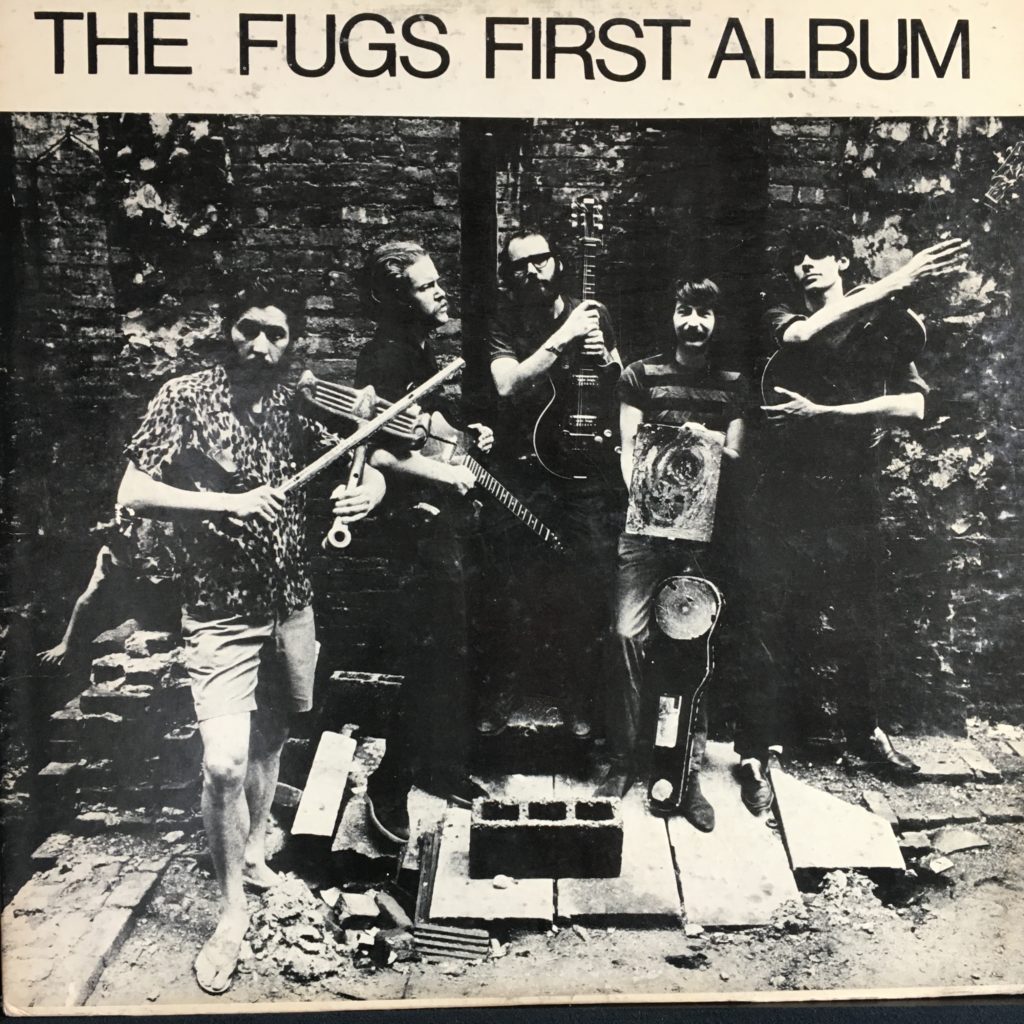
As with many things, my first taste of The Fugs came from a tape that my friend Dan made — I believe the song was “Coca-Cola Douche.” I couldn’t believe that what I was hearing had been put on record. And that’s generally what’s happening with The Fugs — creative obscenity in service of anti-war and pro-sex sentiments.
The Fugs were formed by a pair of Greenwich Village poets, Ed Sanders and Tuli Kupferberg, along with singer and drummer Ken Weaver; their general purpose was satirical folk rock, often bordering on the obscene (certainly for the mid-’60s), along with bizarre turns of poetry. They took their name from Norman Mailer’s substitute for “fuck” in The Naked and The Dead, because in 1948 our eyes couldn’t bear to see that word in print.
Maybe The Fugs were the first true underground band. They were subversive, offensive, and funny. This first album is musically pretty rough, one must say. While today, we wouldn’t think twice about their lyrics, in 1965 they were absolutely beyond the bleeding edge. Witness “Slum Goddess”:
First time that we balled it nearly drove me insane
Next time that we balled it ripped me out of my brain
The third time that we balled I nearly fainted dead
I woke up she was on her knees stompin’ on my head
And so on. Were The Standells singing this? They were not.
I was born too late to be a hippie, and my parents were a long way from hippies, but that doesn’t mean I didn’t give it a try. For several years, I focused on almost nothing but sixties music, for example. My hair, it was long. My jeans, at least one pair, had a self-embroidered peace sign. I took the drugs, listened to Firesign Theatre, took not one but two classes (for credit!) on the ’60s and protest movements; my minor was in something called the program in Nonviolent Conflict and Change. I even for a time tried to be active with some things going down at the Syracuse Peace Council, which then and now claimed to be the oldest local grassroots peace and justice organization in the country. (I lacked the patience required to get anything done in an organization completely committed to consensus, so it wasn’t a long relationship.)
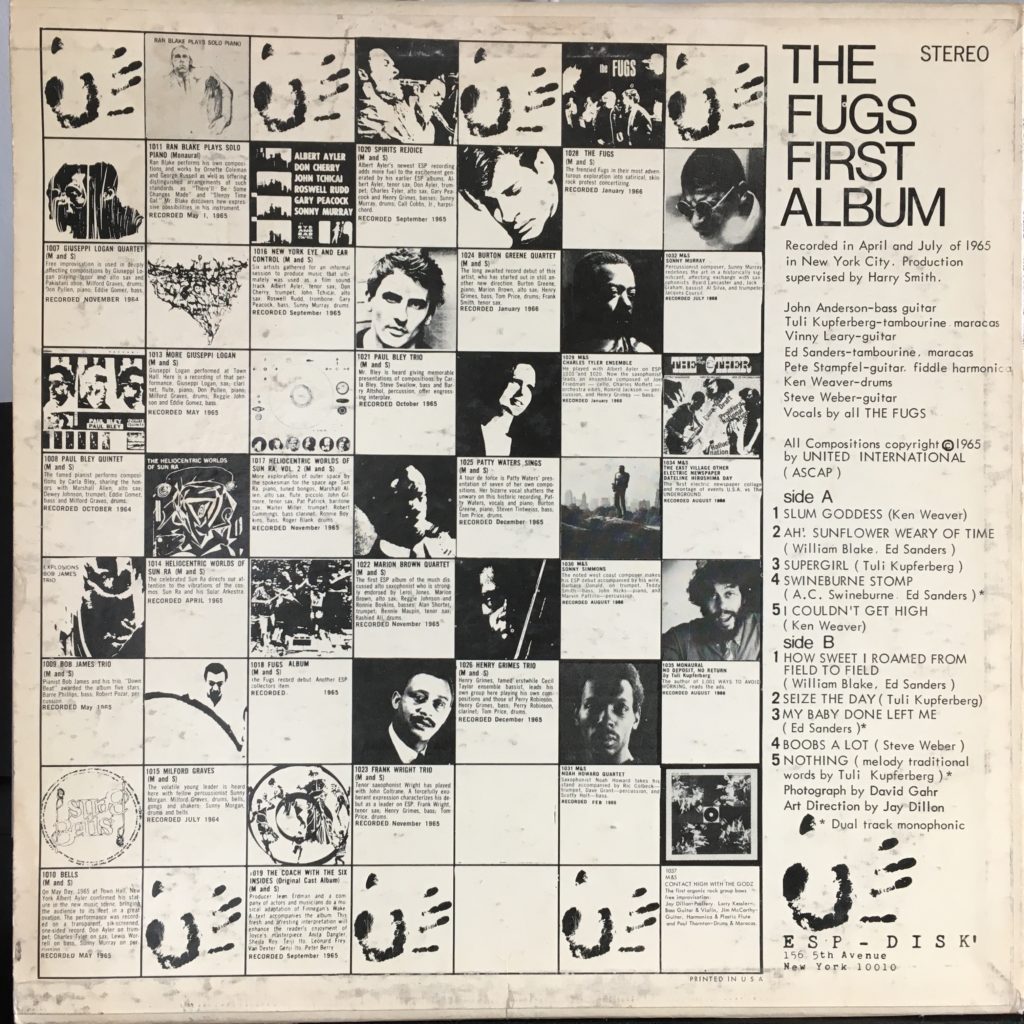
So in the midst of trying to understand the ’60s, the weird and very scary decade that I grew up in, of course I was going to have to find out what The Fugs were about. For a couple of years, say 1979, 1980, I gave this a lot of play; the Fugs mindset fit in very well with my own. Is there irony that i went from questioning authority to being authority, with a fairly lengthy career in state government? Not really. That questioning and doubt turned into a form of conservatism that was somewhat popular then, the conservatism that challenged government to rethink, to do things better, to try to streamline. That “let’s do this better” approach has now been completely swamped by the “Let’s not do anything at all” approach, the “government is the problem” brand of conservatism, a continuation of Reaganist nonsense that I never bought into but that is today the root of our descent into madness. The Fugs were active at a time when they thought things were descending into madness, too, and their songs are a reaction to that madness. I’ll talk more about their political involvement in the next entry.
As I said, this record is a bit rough. It’s not for listening pleasure, it’s for shock value, it’s for “fuck the man!” It’s good at that. But after a couple of years of listening, it got set aside and rarely ever played again. It’s actually kinda remarkable I never got rid of The Fugs in one of my purges, but for some reason, I held onto them, even though I never listened to them.
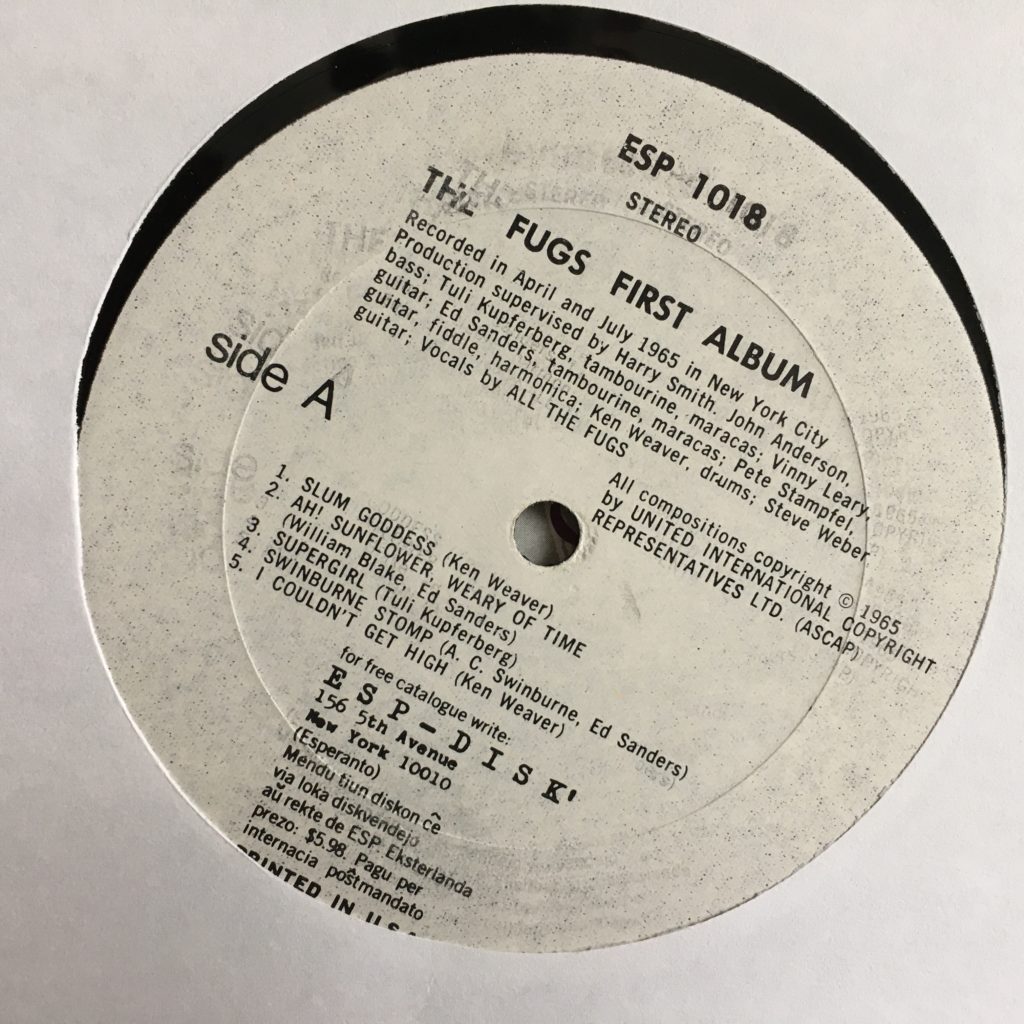
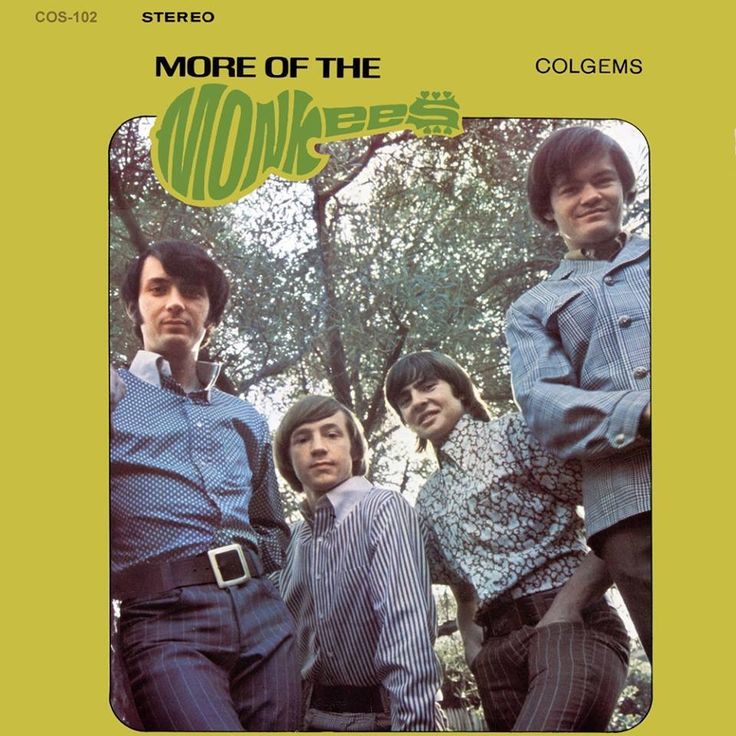
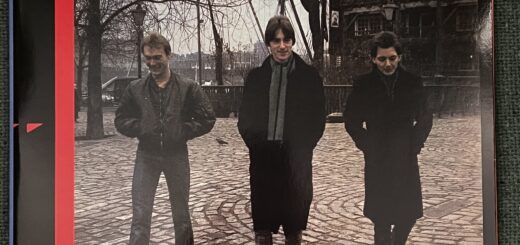
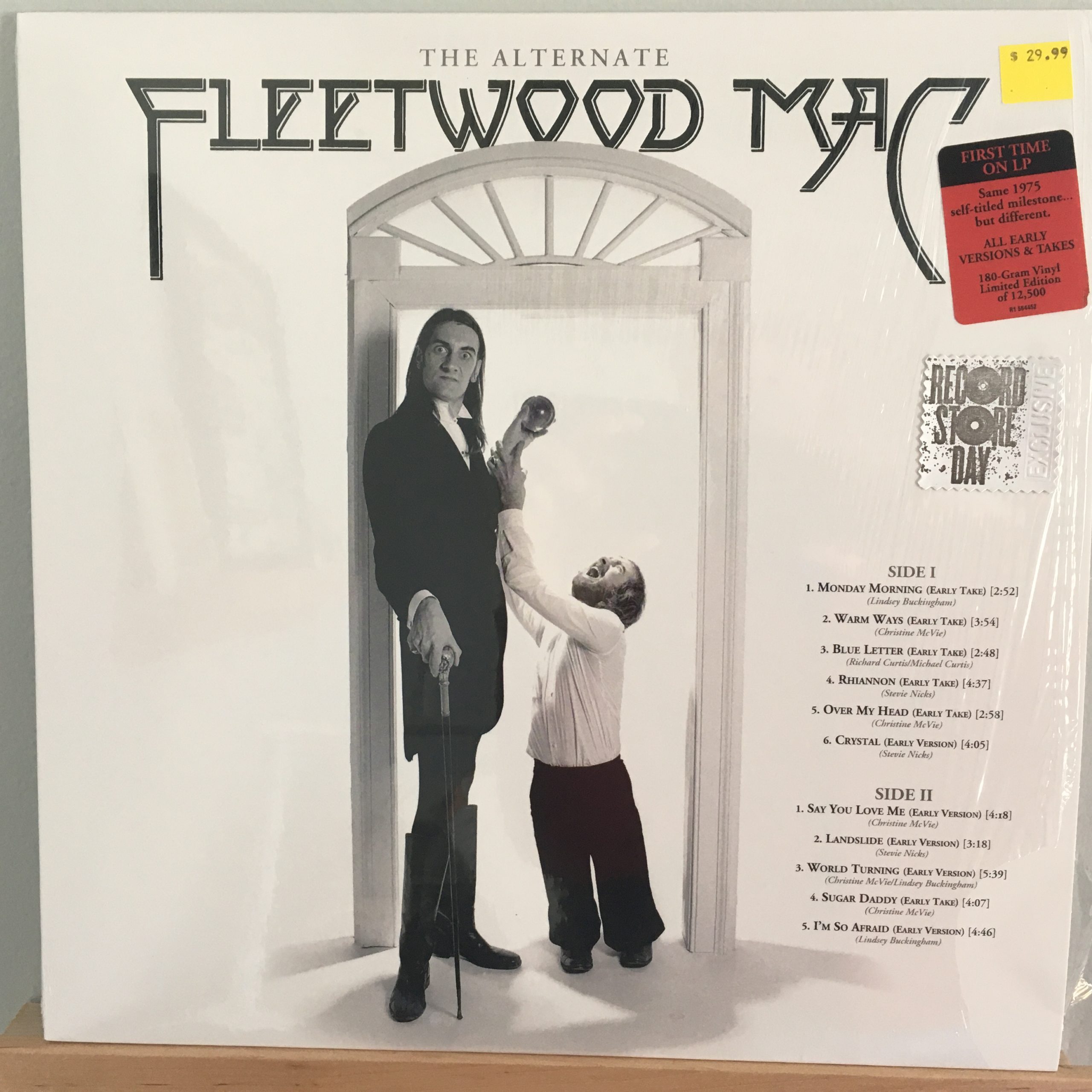
1 Response
[…] Clinton, mentioned last time I posted, Kris Needs finds some common ground between Funkadelic and The Fugs, and argues that The Fugs’ radical, revolutionary theatrical approach to music influenced […]